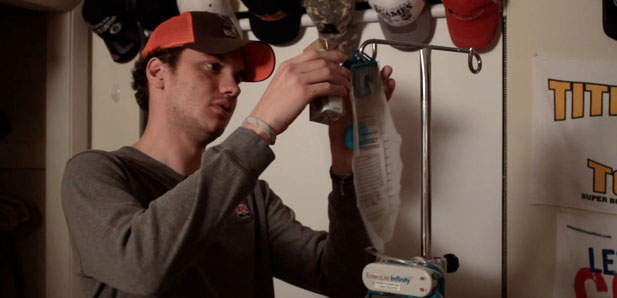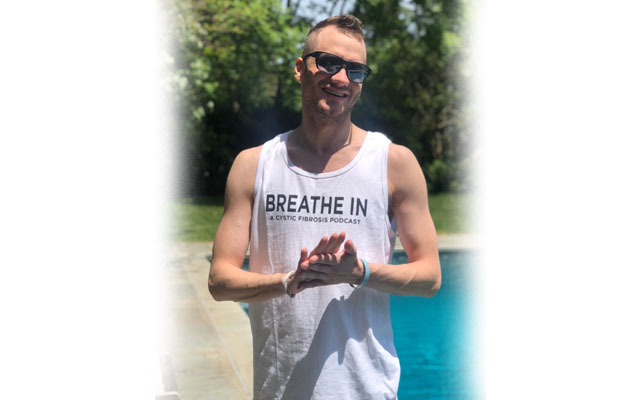Last week I blogged about applying to college, but what happens when you get in?
The short answer… a lot.
You likely have experience with the disabilities process throughout high school and standardized testing via a 504 plan, but college can be a different animal entirely.
Most universities have a disabilities office, which serves to provide proper academic and university accommodations for students. They all carry different names. When I was at BC, I worked with the dean of students with disabilities. Whether or not that person was actually a dean is up for discussions, but that was what the office was called when I was matriculating. I also did a summer course at St. John’s University (I’ll get into that a little more in a moment) where I dealt with disability services, or something of that nature. Now that I am enrolled at Tuck, I am working with the MBA Program Office to secure proper accommodations. The first step as soon as you enroll in whatever college you choose is to find that office. Sometimes it’s more challenging than others. At BC, it was quite easy. St. John’s, on the other hand, was a bit like pulling teeth.
The caveat here is that not all universities need to adhere to federal protections for people with disabilities. While super rare, these colleges are generally of the very religious type – to put it simply, it has to do with their relationship with the federal government. I have heard horror stories about students with CF finding out that their college doesn’t need to adhere to federal disabilities protections halfway through the school year. It is critically important that you learn about what your university is going to offer to you before you matriculate.
Yes, BC and St. John’s are both Catholic universities, but they did not fall into the above category.
The disabilities office serves as your vehicle for disclosing your cystic fibrosis within the larger administration, most notably with your professors and the housing office. When I first enrolled at BC, I supplied medical documentation, a PFT and a note from the doctor outlining some of my needs. From there I used to set up a standing meeting at the beginning of each semester to discuss what I would need in the classroom, and if any of my needs changed. I remember feeling super nervous before a lot of these meetings, but looking back, confidence is important. After all, I was working with rational human beings, who only want the best for all students. You can also practice with a close relative (maybe not your parents who know the intricacies of CF, but someone in your family who is kind of familiar with it).
At Boston College, I was granted several accommodations. On the academic side, I was allowed to choose classes in the disability round of class selections (the day before the rest of the student body, which as you can imagine, was awesome), I was allowed to take exams in a private room because of my loud and productive cough, I was granted reasonable extensions with reasonable notice, I was granted reasonable lateness, the attendance record did not apply to me, and I took four classes per semester instead of the usual five following a bit of a health disaster during my freshman year. With that last one, four classes instead of five, a policy at Boston College allowed me to enroll in BC summer school (which I did one summer, so I could graduate on time) without having to pay extra tuition. Essentially, my tuition payments rolled over into the Boston College summer school.
On the student life side, I was registered with health services, I was able to get PICC line dressing changes done inside the infirmary (negating the need for a home health nurse), I had priority housing selection (at BC, tradition demanded that we live on campus three of the four years), which ultimately also affected the meal plan I had to buy (I was able to buy the lesser one because I was given housing with kitchens), and I was granted on-campus parking.
I was sure to document every single agreement that I had in place with the university, and so did the disabilities office. In fact, I have since gotten all of my disabilities records from BC so I could share them with the proper people graduate school. The housing department was usually the most difficult to deal with, but continued pressure from me, the disabilities office, and even my college’s dean, always contributed to the outcome I desired. Quite frankly, undergraduate universities pretty much have to give you whatever you need, and they’ll eventually get there – sometimes you just have to apply pressure, kind of like applying pressure on an insurance company (you know, using CF skills in other parts of your life!).
Like I said above, I did a summer course at St. John’s and the process was pretty much the same with my academic accommodations, except I commuted to class each day from my family home. I really gutted that one out. Class started the week after I had my g-tube placed, which made things a little interesting for the first few days.
Now that I am heading to graduate school, I will say the experience has already been entirely different. So far everyone has been incredibly receptive to my needs. Maybe it’s because I am older and have a lot of practice advocating for myself or because from the university’s perspective they are dealing with an adult and not an 18 year old kid. I suppose it could also be the result of me being the first ever person with cystic fibrosis to enroll at Tuck. Either way, I decided from the outset that I would be as transparent as possible because that’s what gave me the best chance of success during my undergrad years.
My biggest takeaway from going through this process a number of times is that it is in your best interest to get administration leadership on the same page with you. It will be super annoying for the first week or so going from one meeting to the next and talking about your CF, but it will pay dividends. The more advocates you can have ready to go to bat for you in the event something goes wrong or your health dips in the wrong direction, the better. Don’t be afraid to ask for a meeting with the dean of your college, your year or department head. Looking back, I can only recall two professors giving me a hard time at BC. Two professors out of the 40 or so that I worked with isn’t so bad. I largely credit that success rate to how honest and transparent I was with them at the beginning of each semester. I also got really amazing advice from an older student with CF who had studied at BC several years before me. She helped in so many ways! Don’t be afraid to reach out to a student with CF who may have gone to the same college – it could be a huge help!
Awhile back, we spoke with Katie Fielding, an educator living with cystic fibrosis, on the podcast about disabilities services. A few weeks ago, Lise-Courtney D’Amico and I talked on the podcast about approaching disabilities services at BC.





